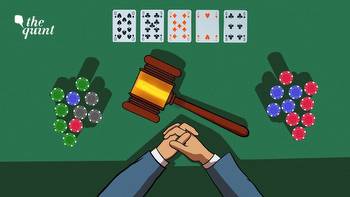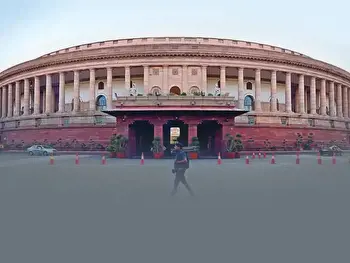Government Should Not Bow To Pressure On Gambling Regulation
Several influential groups are coming out in opposition to recent regulatory developments in the state of Meghalaya, and iGaming professionals are imploring a more nuanced and pragmatic approach to the issue.
What are the current debate frameworks for both the pro-gambling and anti-regulatory bodies? Is there any hope of finding a national consensus on online gambling? What are the next developments in gambling legislation?
Why the opposition to gambling regulations is flawed
The influential Meghalaya United Christian Forum (MUCF) was one of the leading voices against the legalization of gambling and online betting for tourists in the state, citing its “apprehension and shock” at the decision.
In a statement, the MUCF said: “The leaders and the Government functionaries should introspect before jumping with excitement without considering the destruction the decision may cause to the present and future generations.”
The statement does not address the substantial issues surrounding illegal gambling across India or provide plans to eradicate the dangers surrounding unregulated and illicit dark money operations.
Many within the iGaming industry believe the regulations are not before time. There is a groundswell of opinion that the best form of player protection is best served under a government taking responsibility for its citizens rather than turning a blind eye.
What does it look like for a government to take responsibility? It means establishing a uniform authority to keep players safe through licensing requirements. It means an immediate closure of unsafe betting organizations. It means the establishment of gambling charities and responsible gaming guidelines (through the proceeds of gambling taxation) for every single player.
What is the scale of illegal online betting in India?
A recent paper from ENV Media shows the extent of the illegal gambling problem in India.
The study, titled Sports Betting: India’s Favorite Invisible Giant, highlights how prevalent illicit betting is in the country and cites several reports that estimate the extensive benefits to India and its economy.
“When India’s national cricket team plays a One-Day International match (ODI), illegal betting amounts to around USD 200 million per game. The combined amount over the year, including the League season and any international competitions, reaches USD 150 billion (~Rs 10 lakh crore in 2016 exchange rates).
The study argues that by ignoring national regulation, they are indirectly funding underground betting rings: “The huge outlay of cash that classic sports betting provides, and which goes (almost) completely into the underground economy. The importance of the industry puts it above the music, TV, and movie segments, all of which – together – are incomparable to illegal sports betting in India.”
Why nationwide gambling regulation needs to happen
Proponents of gambling regulation in India understand the country is under a conservative government that resists upheaval to the status quo to retain its grip on power. There are fears the refusal to embrace a vast potential economy is damaging on varying levels.
Experts estimate that billions of dollars are being lost to criminals. The damage to ordinary people that MUCF speaks of is not the responsibility of legitimate and regulated online betting sites, regulatory supporters argue. Instead, it is the fault of dark money oddsmakers who flourish in a Wild West environment that rages against the ethics and morals of religious groups such as the MUCF.
In its statement, the MUCF writes: “The bigger question is whether people are willing to pay the price and are they ready to bear the repercussions of such an endeavor on the society at large?”, apparently missing the current state of play for hundreds of thousands of gamblers.
Gambling is already a massive part of everyday life in Meghalaya, and the government is not doing anything to stop it. Many are asking, why not reap all the societal and financial benefits of gambling regulation on the best online casino and sports betting sites?
Those that are behind the regulatory effort in India believe a future where mutual respect and understanding existing between pro and anti-gambling lobbies can only come under government regulation, and that a failure to take the leap is simply ignoring the elephant in the room.





































